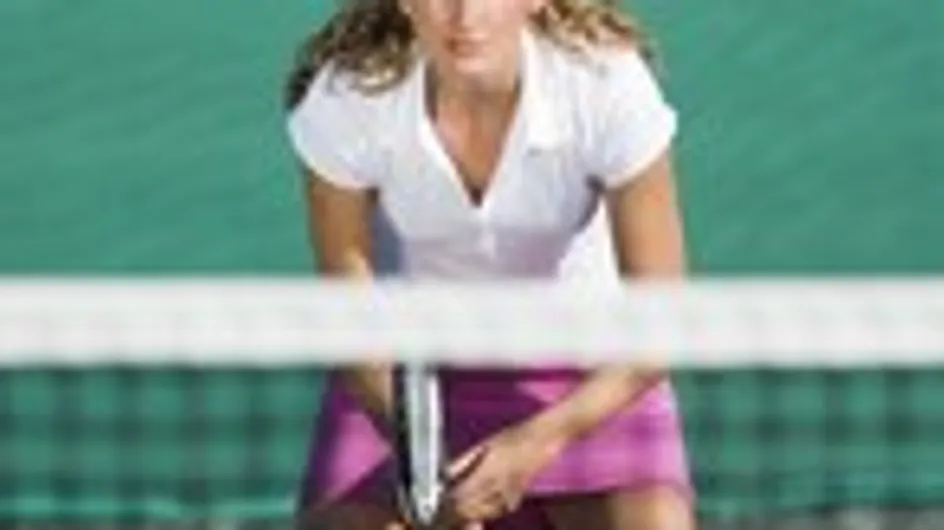There are over 2,700 clubs affiliated to the Lawn Tennis Association in the UK. Tennis is one of our favourite team sports, and with more and more people taking it up in the hope of either becoming Wimbledon champion or just having a sociable knock-about, tennis is losing its tag as an elitist sport.
All-round exercise
Tennis isn't just about chasing a ball around court! Tennis requires a combination of the following:
-physical ability. The ball can only bounce once, so players have to move extremely fast to cover the whole court, especially in singles. Hitting also requires a great deal of strength.
-technical ability. You need to have a range of shots: serve, forehand, backhand, volley, lob, drop shot and smash. You need to manipulate the ball to give your shots lift and slice. You also need to learn to play on the different surfaces you may encournter (hard court, grass or clay). And you have to anticipate the trajectory of the ball and place yourself accordingly.
-tactics. You score points by outwitting your opponent and placing the ball cleverly, using passing shots and lobs .You alo need to pace yourself to save your energy and play on your opponent's weaknesses. It's a mental and physical battle!
The benefits
Tennis is an all-round game with many advantages:
-It uses up lots of energy because it requires strength to hit the ball, speed to sprint for shots and endurance (matches last at least an hour). Tennis burns 400-600 kcal per hour.
-It tones the whole body, especially the legs, arms and trunk (chest, abs etc) and develops powerful muscle mass.
-It develops coordination. In tennis, you learn to synchronise your movements (forwards, backwards, sideways and jumps) with your swing.
-It aids concentration, firstly because it's a tactical game and you need to figure out a strategy to beat your opponent; and secondly because you need to stay alert in order to anticipate the trajectory of the ball and place it correctly.
-It teaches control. You can't just hit the ball any old how or you'll send it out of court. You have to be precise and use restraint where necessary.
-It clears your head. Tennis is a fun mental and physical outlet. When you've got your mind on the ball, you forget about everything else!
Drawbacks
Tennis isn't all advantages: it's intensive and can be tough on the body. The frequent changes of speed really test your heart, and it's tough on your joints too because they have to cope with brutal changes of direction. Also, jumps and blocks put pressure on the veins, damaging their walls and encouraging the onset of varicose veins, so take care if you have any history of heart trouble, you're overweight or have vein problems.
Play it safe
Avoid injury by following these basic rules:
-Prepare yourself. Don't throw yourself into tennis one day if you're unfit: start with some endurance work such as walking, running, cycling or swimming to get your heart, lungs, joints, tendons and muscles used to gentle exercise.
-Warm up. Don't start playing until you've had a little jog around the court, a few jumps, chasse steps, wrist, pelvis, neck and shoulder rotations.
-Use the right equipment. if your racket is too heavy, not properly strung or balanced, you'll have a fair chance of getting tendonitis! Get it checked and maintained by a professionnal.
-Stay hydrated! Intense exertion equals sweat, so drink regularly to make up for the water you lose. Cereal bars, energy drinks and dried fruit are all great pick-me-ups if you feel yourself flagging.
More information
For more information on tennis clubs in your area, visit the Lawn Tennis Association website at www.lta.org.uk.













